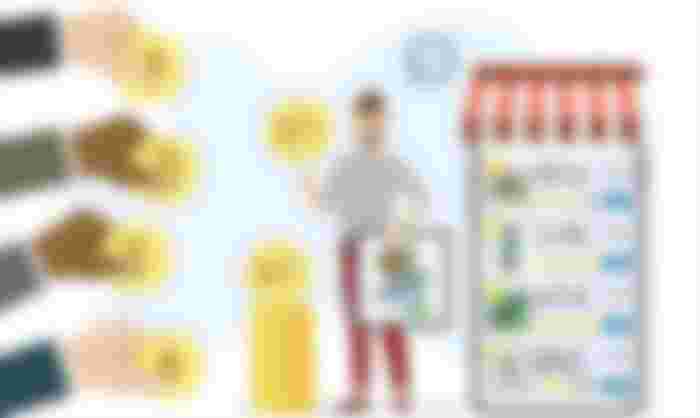11 NFT marketplaces you should know

Choosing the right NFT marketplace could make a difference to whether your NFT art sells or not. It's not just about choosing where to sell your art based on the fees you'll pay; you need to consider which of the many NFT marketplaces best suits the type of NFT you're creating, and which blockchain it uses. Most NFT marketplaces use Ethereum but some are opting for the cheaper gas fees (which you have to pay to create your NFT) and better carbon footprint offered by newer blockchains.
In the guide below, we've rounded up some of best NFT marketplaces on which you can create and sell NFTs (or buy and collect them if you're a collector rather than a creator). Whether you're buying, selling, or just NFT-curious, one of these marketplaces should suit your needs. After even if you're not planning to use an NFT marketplace at the moment, anyone in the creative industry right now should probably know what they are and how they work.
01. OpenSea
02. Nifty Gateway
03. Rarible
04. Binance NFT
05. SuperRare
06. Async Art
07. MakersPlace
07. MakersPlace
09. Foundation
10. Zora
11. Mintable
The best NFT marketplaces: frequently asked questions
There's a lot of jargon involved in the world of NFT marketplaces, and some controversy around NFTs themselves. Many NFT marketplaces are trying to make their platforms easier to use, and some even now take debit and credit cards as well as crypto wallets, so creating, selling and buying NFTs is becoming easier. Below are the answers to some common questions many newcomers to the NFT scene still have.
What are gas fees?
This is the charge you need to pay on the Ethereum blockchain to perform a function, which includes the case of creating (minting) an NFT. Gas fees are measured in gwei, and they can go up and down depending on how heavy the use of the blockchain is. On average you'll be charged 0.0042 ETH per transaction. You can find lower fees early in the morning, between 1am and 3 am (UTC) or late at night, between 9pm and 11 pm (UTC).
Can I avoid gas fees?
Yes, some NFT marketplaces are offering gas-free minting. These including OpenSea and Rarible. This approach essentially places the gas fee on the buyer not the creator, so it will show in the sale (a little like VAT, or the fuel tax added by some airlines). There are some blockchains that have no gas fees or at least lower fees. These include Polygon on Opensea, or ImmutableX on Mintable. Before minting or buying an NFT, look into the fees and at which blockchain and token are being used.
What is minting?
Like with physical currency, "minting" is the term used for the process of creating a currency and NFTs on a blockchain. With NFTs it's usually on Ethereum. The process of minting records data in a public ledger that is unchangeable and tamper-proof, and which can follow and track the NFT as future sales are made. Minting usually has a cost – the gas fee that we mentioned above. But as we said, some marketplaces are becoming creative about how, when and to whom the fees are charged.
What's a blockchain?
Investopedia describes a blockchain as: "a distributed database that is shared among the nodes of a computer network." The strength of blockchain tech is that it guarantees security and trust without the need for a third-party, speeding up data transactions. The data entered is irreversible, ensuring it's permanent. For NFTs, it means the artist can trace their NFT and ensure a percentage on future sales.
Do I need a crypto wallet?
In most cases, yes. In most cases, you will need to pay in cryptocurrency to mint an NFT, or to buy an NFT. As a result, most NFT marketplaces require you to create a crypto wallet to mint and trade NFTs. A common one is MetaMask, though Coinbase is another secure wallet. Some newer NFT marketplaces, such as Nifty Gateway, have started allowing the use of Fiat currency payments (US dollars, etc) via credit and debit cards, making access to NFTs easier.
Can anything be an NFT?
Yes. Any kind of digital file can be stored as an NFT. Most marketplaces are set up for digital artwork, but more are now supporting video, game assets, and music. Physical items are also now digitised as NFTs, for example physical limited edition Nike trainers. Expect NFTs to exist on and between the digital and physical spaces in the future.
Are NFTs controversial?
Yes. You can't escape the fact Ethereum minting has a high carbon footprint, but perhaps not as high as some believe. Yet everyone accepts there is a problem. Ethererum 2.0 should solve this issue, and is due this year.
